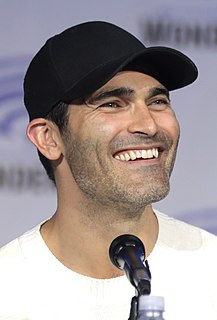A Quote by Debra Granik
I think, in some ways, that is the balm of stories, of fables, of tales: it's the way we're wired. We have always needed to distill what we're going through and try to understand it by looking either backwards or forwards. And the hardest is to look in the now.
Related Quotes
In a way, I feel that we're always connected, maybe you and me, we've been connected - not only now, but before. That's why we've crossed paths. And this manifests beautifully for me in fables, old television, novels in Thailand, but now we try to ignore these themes and stories. That's why now when we make "ghost" films, they have a certain stock quality to their effects, a certain formula, and I miss how it used to be.
Well, you know, going into any project, especially with a fan base as vocal and passionate as something as "Star Wars," you will have groups of people who will find issues with whatever it is you're doing. But our job was to tell the best story we could about characters that we loved, and we knew that we needed to go backwards to go forwards, and we needed to go back to a feeling and a place and a time.
For me, I think it's such an important thing to hear other people's stories, because you do find ways that either you can learn something from them, or you can identify with something that they've gone through. You realize that maybe what you're going through in life isn't just specific to you, that somebody else understands it, or you talk to someone and all of sudden you see something in a completely different way because of what they've said to you or shared with you.
People say, "Look, your book [Tales and Wisdom from Duck Dynasty's Favorite Uncle] is about tall tales." And I said, "No, you don't understand, OK? The book is tall tales, OK, by me. But look, those tall tales are my life, OK? And look, I added some spices in there. That's the five percent. You know the one about the wolves chasing me? The only thing about that - they wasn't wolves, they was coyotes".
Though now we think of fairy tales as stories intended for very young children, this is a relatively modern idea. In the oral tradition, magical stories were enjoyed by listeners young and old alike, while literary fairy tales (including most of the tales that are best known today) were published primarily for adult readers until the 19th century.






































